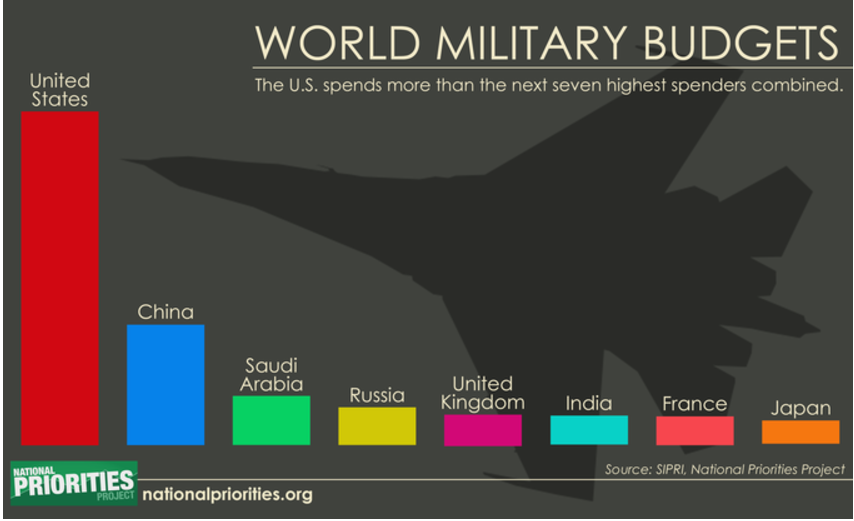In the early 70’s, at the height of the Vietnam War our military was treated with a great deal of disrespect. The people at home were unhappy with the war and took their frustrations out on the folks that served. That was not right. Those soldiers did the job required of them. They didn’t choose the conflict, they fulfilled their obligation. It seems most of our nation has come to understand that, but have we swung the pendulum just a little too far?
We now treat service members with a level of respect that could be considered adoration. We give them discounts at our shops, tickets to our events, we thank them over and over again, we quite simply love those who served. My question is, should we?
The business of the military is war. We must never forget that. Elevating them to a pedestal subtly promotes this business. Nobody ever seems to argue that we should cut military spending. Yet, our spending on military is 37% of the spending of the entire world and is equal to the spending of the next 7 largest countries combined. Seems a little insane to me. It’s been decades since a hostile nation has attempted a military assault within our borders. When your business is war, just like any other business you would be wise to stoke the demand.
We should respect our soldiers. There is no doubt we need them to keep our nation safe. Our allies need our soldiers to protect them as well. Those who serve do a job that many of us are unwilling to do. In return, we sign a pretty decent social contract with them. Serve honorably, sacrifice for your nation and we will take care of you for the rest of your life. We will provide medical care, employment opportunities, support services, and if you spend 20 years a pension. Adoring them, however, is subconsciously adoring war.
What do you think?
More information on US military spending compared to the rest of the world:
https://www.nationalpriorities.org/campaigns/us-military-spending-vs-world/

